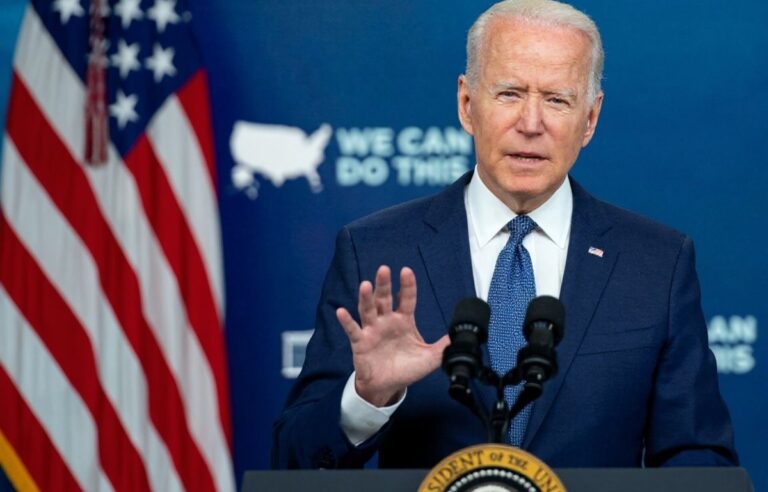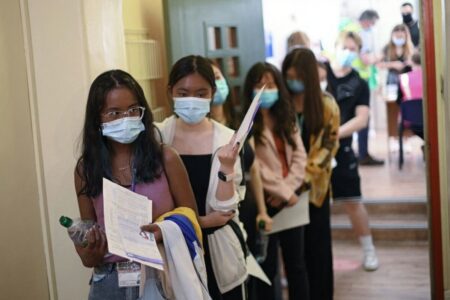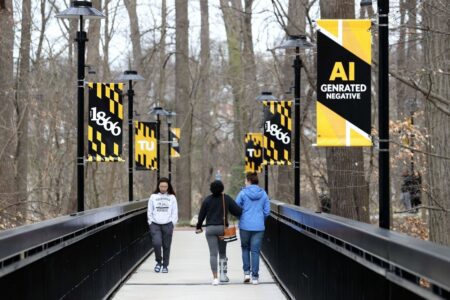
Here’s some welcome news for international students who are planning to study in the US — the Department of Homeland Security has withdrawn a proposed rule under the Trump administration that would have attached fixed time limits to certain student visas amid widespread opposition, reported The Wall Street Journal (WSJ). Despite this, some Chinese students are still facing challenges in getting their US student visa accepted.
Since taking office, US President Joe Biden has been reversing or revoking a number of the Trump administration’s immigration-related policies and proposals. Last September, the Trump administration proposed adding fixed terms to US student visas when they are issued.
In a statement, the agency said the new rule requires a fixed period of stay for international students, exchange visitors and foreign media representatives “to encourage programme compliance, reduce fraud and enhance national security.”
Depending on their nationality, study visas could expire after four or two years of being issued. Study visas would also not exceed four years, a departure from the practice of allowing student visas to remain valid as long as they are still in school. This could affect students in doctoral programmes that tend to last over four years or those who need more time to complete their degrees. Last year, over one million students were in the US on F visas, one of the categories that would have been affected by the proposed rule.
DHS said it received roughly 32,000 comments in the month after the rule was recommended. More than 99% of those opposed the plan, reported WSJ. Commenters said the proposed rule was discriminatory, unnecessary, and costly, as many students would need to apply for extensions.
Chinese applicants are not getting their US student visa
 US Secretary of Homeland Security Alejandro Mayorkas testifies during a US Senate Appropriations Subcommittee on Homeland Security hearing about the Fiscal Year 2022 Funding Request for the Department of Homeland Security, on Capitol Hill in Washington, DC, May 26, 2021.Biden issued an executive order in February instructing DHS to review elements of the system that might block access to immigration benefits. The agency said it is concerned that the Trump administration’s proposed changes would “unnecessarily impede access to immigration benefits.”
US Secretary of Homeland Security Alejandro Mayorkas testifies during a US Senate Appropriations Subcommittee on Homeland Security hearing about the Fiscal Year 2022 Funding Request for the Department of Homeland Security, on Capitol Hill in Washington, DC, May 26, 2021.Biden issued an executive order in February instructing DHS to review elements of the system that might block access to immigration benefits. The agency said it is concerned that the Trump administration’s proposed changes would “unnecessarily impede access to immigration benefits.”
The proposal would affect international students who wanted to stay on in the US to attend graduate school, or those who need more time to complete their undergraduate degrees.
Federal data shows that among international students who started full-time bachelor’s degree programmes in 2012, half (51.9%) graduated within four years, and 71.5% did within six years. Both figures are higher than the overall four- and six-year US graduation rates of 43.7% and 62.4%.
In a separate report by China Daily, the US student visa applications of over 500 Chinese students, who had received offers to pursue postgraduate STEM programmes at top universities, were reportedly rejected. The rejections were purportedly based on the Trump-era Immigration and Nationality Act and Presidential Proclamation 10043, which suspends entry for Chinese students and researchers who Washington deems as being connected to China’s “military-civil fusion strategy”.
Quoting sources familiar with the matter, China Daily said about a quarter of the students had been awarded US scholarships; the vast majority of them submitted visa applications after Biden took office. Among the universities students planned to attend include Harvard, Yale, University of California Berkeley and Massachusetts Institute of Technology. Some of these students co-signed a letter urging the US government to stop discriminating against Chinese students.
In response, Beijing has urged Washington to “correct its mistakes, reconsider the visa applications for Chinese students to study in the US, stop using various excuses to willfully restrict and suppress Chinese students, protect their legitimate rights and interests and create a good atmosphere for China-US people-to-people exchanges and education cooperation,” Foreign Ministry spokesman Zhao Lijian was quoted saying on Tuesday.










